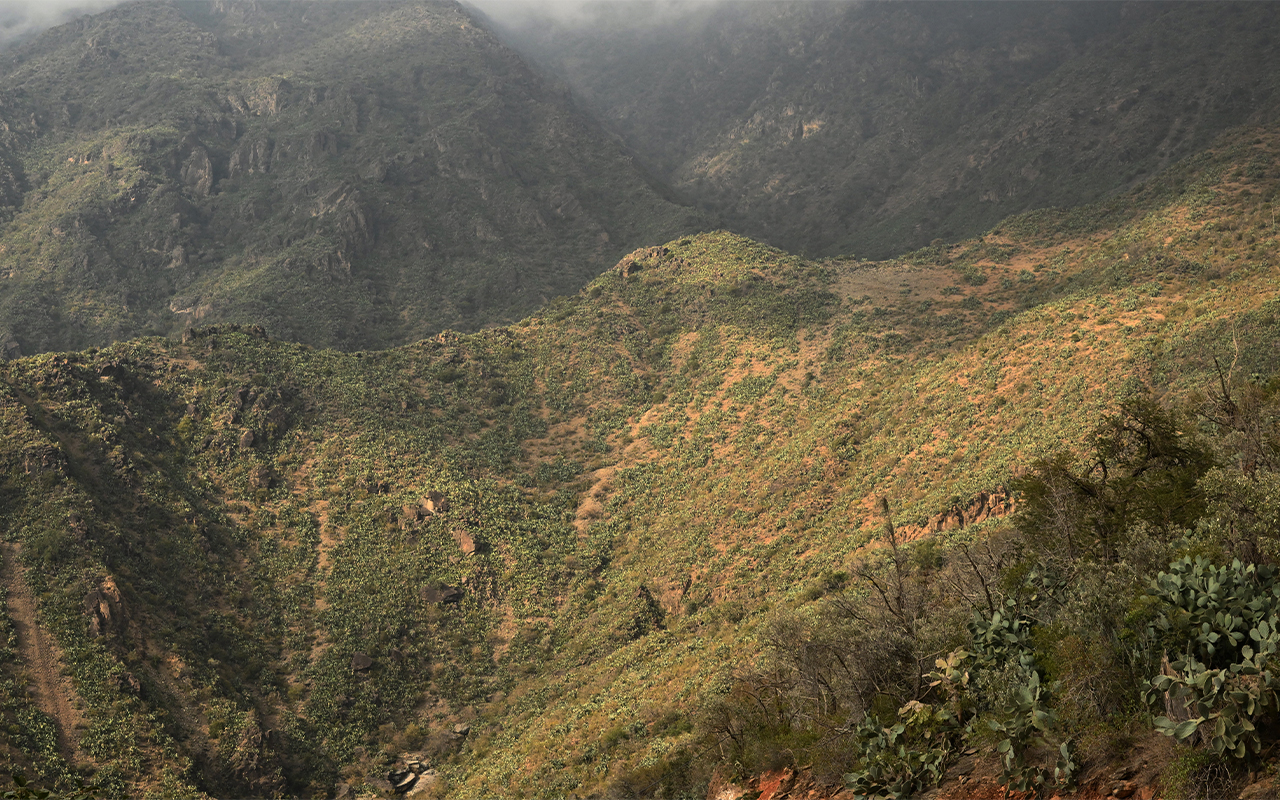Raydah Natural Reserve
The Raydah Natural Reserve is one of the Kingdom of Saudi Arabia's natural reserves supervised by the National Center for Wildlife. Located southwest of the Kingdom, the Raydah Natural Reserve is situated within the Sarawat Mountains. It is the only nature reserve in the Aseer Province, situated about twenty km northwest of the city of Abha, with an area of approximately 9.33 km
Features of Raydah Natural Reserve
The Raydah Natural Reserve is distinguished by its dense and diverse vegetation. Juniper forests spread across the top of the cliff, while below them grow wild olive trees (Olea Africana), acacias, and several species of cacti. It contains reefs, distinct for their high diversity and dense vegetation.
The Raydah Natural Reserve is part of the Arab Shield, which primarily consists of moving volcanic rock. The reserve is comprised of steep slopes covered by dense vegetation, predominantly juniper trees, with a number of water tributaries descending from the top of the cliff and pouring into Raydah Valley.
Animal and bird species at Raydah Natural Reserve
The most important fauna in the reserve include Baboon (Papio), Arabian wolf, fox, stripped hyena, white-tailed ferret, lynx, and hyrax.
The reserve is home to nine bird species endemic to the Arabian Peninsula, most notably the spotted redshank (Tringa erythropus), Arabian woodpecker (Dendropicos dorae), and the Asir magpie (Pica asirensis), as well as several species of east-African origin, such as the African grey hornbill (Lophoceros nasutus), fiery-necked nightjar (Caprimulgus pectoralis), hamerkop (Scopus umbrette), Abyssinian roller (Coracias abyssinicus), and the Arabian green bee-eater (Merops cyanophrys).
Educational and cultural significance of Raydah Natural Reserve
Educationally and culturally, the Raydah Natural Reserve has been included in the events of the cultural wildlife preservation awareness week, managed by the General Directorate of Education in Aseer Province, since 2011. Students participating in the event partake in the reserve’s field scientific studies as part of the Global Learning and Observation to Benefit the Environment (GLOBE) program in the province, through a range of global measurements, including soil pH protocol, water protocol, and climate protocol.

Raydah among fifteen protected areas
There are currently fifteen protected areas across the provinces of the Kingdom (twelve land and three marine reserves), intending to protect a range of integrated natural ecosystems, namely: Harrat al-Harrah, al-Khunfah, al-Tubayq, Ibex Reserve, Mahazat al-Sayd, Raydah, Farasan Islands, Uruq Bani Mu'arid, Jabal Shada Reserve, Umm al-Qamari, Majami' al-Hadb, and Jubail Marine Wildlife Sanctuary, in addition to three areas considered shelters for rehabilitation of houbara (MacQueen’s) bustard (Chlamydotis undulata macqueenii); at-Taysiyyah, Nafud al-ʽUrayq, and Saja and Umm al-Rimth Nature Reserves.
These protected areas are operated by an administrative and technical agency that includes a scientific director for each reserve, and a team leader for rangers who carry out ground surveillance to monitor the reserve's wildlife and prevent violations and trespasses, assisted by an aerial surveillance team.